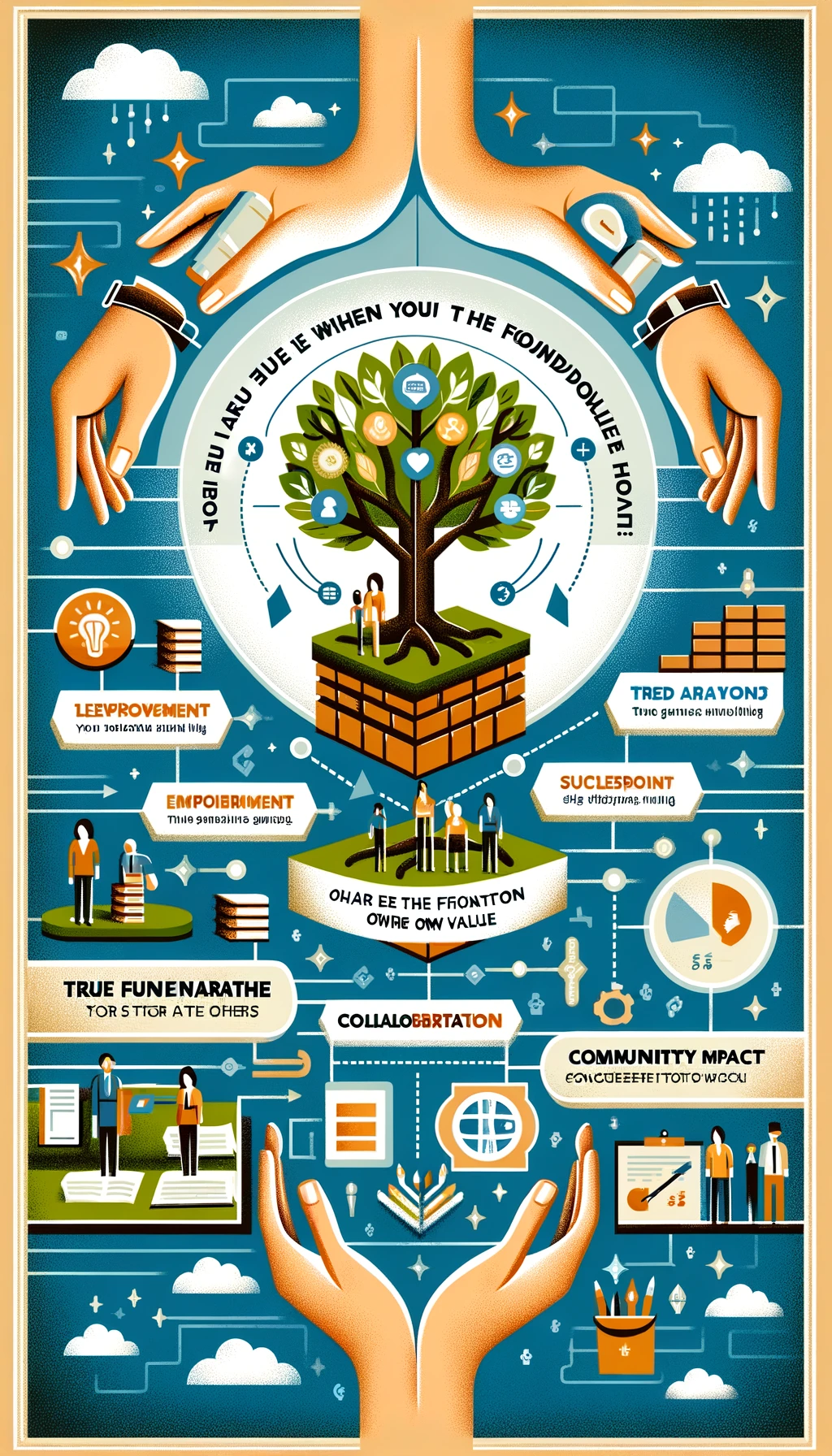Introduction
In the realm of personal and professional success, the greatest achievement often lies not in what we accomplish individually but in how we serve as catalysts for the success of others. The true measure of value is found when we become the foundation upon which others build their dreams and ambitions.
The Essence of Being a Foundation for Others
The idea that our greatest contribution may lie in supporting others is a profound shift from traditional notions of success. When we become a platform for others, we offer more than just help; we provide opportunities for growth, learning, and achievement. This concept is encapsulated in the words of leadership expert John C. Maxwell, who said, “Leaders become great, not because of their power, but because of their ability to empower others.”
Examples from History and Modern Times
Throughout history, there are countless examples of individuals and organizations that have thrived by being the bedrock for others. Educational institutions, for instance, derive their value from the success of their students. Similarly, in the business world, companies like Google have created platforms that enable countless other businesses to flourish.
The Ripple Effect of Empowerment
When we empower others, the impact extends far beyond the immediate beneficiaries. This ripple effect can transform communities and societies. As social activist Marian Wright Edelman aptly put it, “You’re not obligated to win. You’re obligated to keep trying to do the best you can every day.” This relentless pursuit of enabling others leads to a collective upliftment.
Challenges and Responsibilities
Embracing the role of a stepping stone for others comes with its challenges. It requires humility, patience, and a genuine desire to see others succeed. The responsibility is significant, as the impact of our support can shape the trajectories of those we aid.
Conclusion
In conclusion, the true value lies not just in our achievements but in our ability to be the foundation for others to create their own value. This approach to life and work fosters a more collaborative, empathetic, and ultimately successful society. As we endeavor to be platforms for a greater good, we not only enrich the lives of others but also find deeper meaning and satisfaction in our own.





